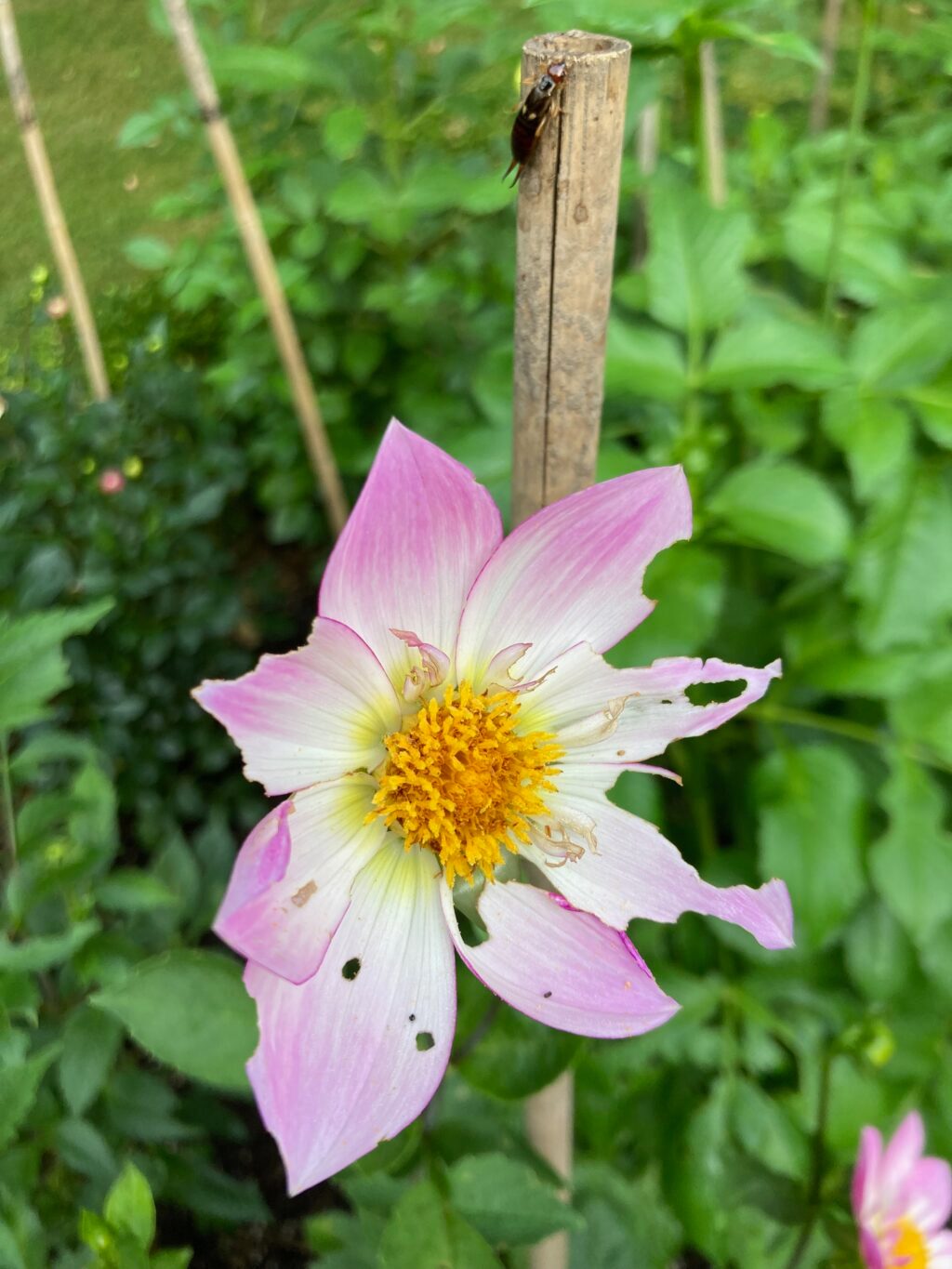Let’s be honest. The gardens we most admire in books and magazines and on Instagram and Facebook do not look like our own gardens. Their level of perfection is awe inspiring and daunting.
However, I’ve been to enough photo shoots for magazines and books to know how a carefully framed view or closeup can make a garden’s best features shine while the mildewed peonies, weeds, chewed dahlias and half-dead evergreen are out of the camera’s range. It’s a contrived perfection.
I mention those examples because these are just a few of the problems I see every day when I walk out my backdoor. I’m sure you have your own disappointments to deal with and if you don’t, well, lucky you.

We need to remind ourselves that a perfect, pristine garden makes life difficult for birds, insects, larvae, small mammals and other fauna that sustain the earth’s ecosystems. What we might think of as perfect is not always in Nature’s best interests.
Striving for perfection is also resource-greedy. The supplemental irrigation, replacement plants, and bags of mulch, soil amendments and commercial fertilizers needed to keep everything in tiptop shape certainly mount up.
Pursuing perfection takes a toll on gardeners, too. It robs us of the joy of admiring the newest dahlia bloom while we instead focus on the petals chewed by earwigs or Japanese beetles. We apologize with a self-deprecating, “You should have seen the garden last month when it was lovely and green.”
I’ll confess that during August my enthusiasm for gardening can falter because it seems like such an uphill slog to keep every plant happy. But perhaps they’re happy enough and I should be, too? Although many plants look tired (as do I), I try to remind myself that I’m fortunate to have space in which to grow a garden, as well as the ability to care for it (with indispensable help from my husband).
I recently read about a concept called the “Cult of the Imperfect,” describing how the goal of perfection prevents humans from flourishing. It’s based on Voltaire’s maxim of “the best is the enemy of the good.” Maybe it would be good for our gardens — and gardeners — to resist celebrating perfectionism quite so much.
Fig-growing advice
After coddling a ‘Brown Turkey’ fig for a couple of years, I gave up when my efforts resulted in one, lonely fig that never ripened. The “Joy of growing figs” by Stephen Westcott-Gratton makes me want to try again. ‘Chicago Hardy’ sounds like a good cultivar.
Pruning wisteria
When to prune wisteria is a common question. The recommendation is to get out the loppers twice a year: in spring and again in August. “Pruning Japanese wisteria” by Judith Adam guides you on pruning cuts that will tame this vigorous vine and trigger abundant blooms.
More garden news and views
•. It’s a little late to start setting up trellises and other supports for your garden plants this year, but file away these ideas for “11 DIY plant cages and supports you can make” from Spruce Gardens for next year.
• There’s no shortage of advice on how to water orchids, some of which involves using ice cubes. “How to water orchids” from Ohio Tropics explains why this isn’t a good idea and suggests other ways to keep your orchids hydrated.
• Some of you may have read Jeff Lowenfels’s books on organic gardening over the years. He’s certainly prolific. A recent article in the New York Times profiles his 45-year (!) tenure as a weekly (!) columnist for the Anchorage Daily News. That’s a lot of writing and a lot of deadlines.









Beckie, thanks for putting into words what I have been struggling with this year. I keep catching myself getting down over what has died, been chewed or been eaten and losing sight of just how beautiful and what a blessing my garden is!
Deborah
Thank you for your kind comment, Deborah. Enjoy your garden–all parts of it!